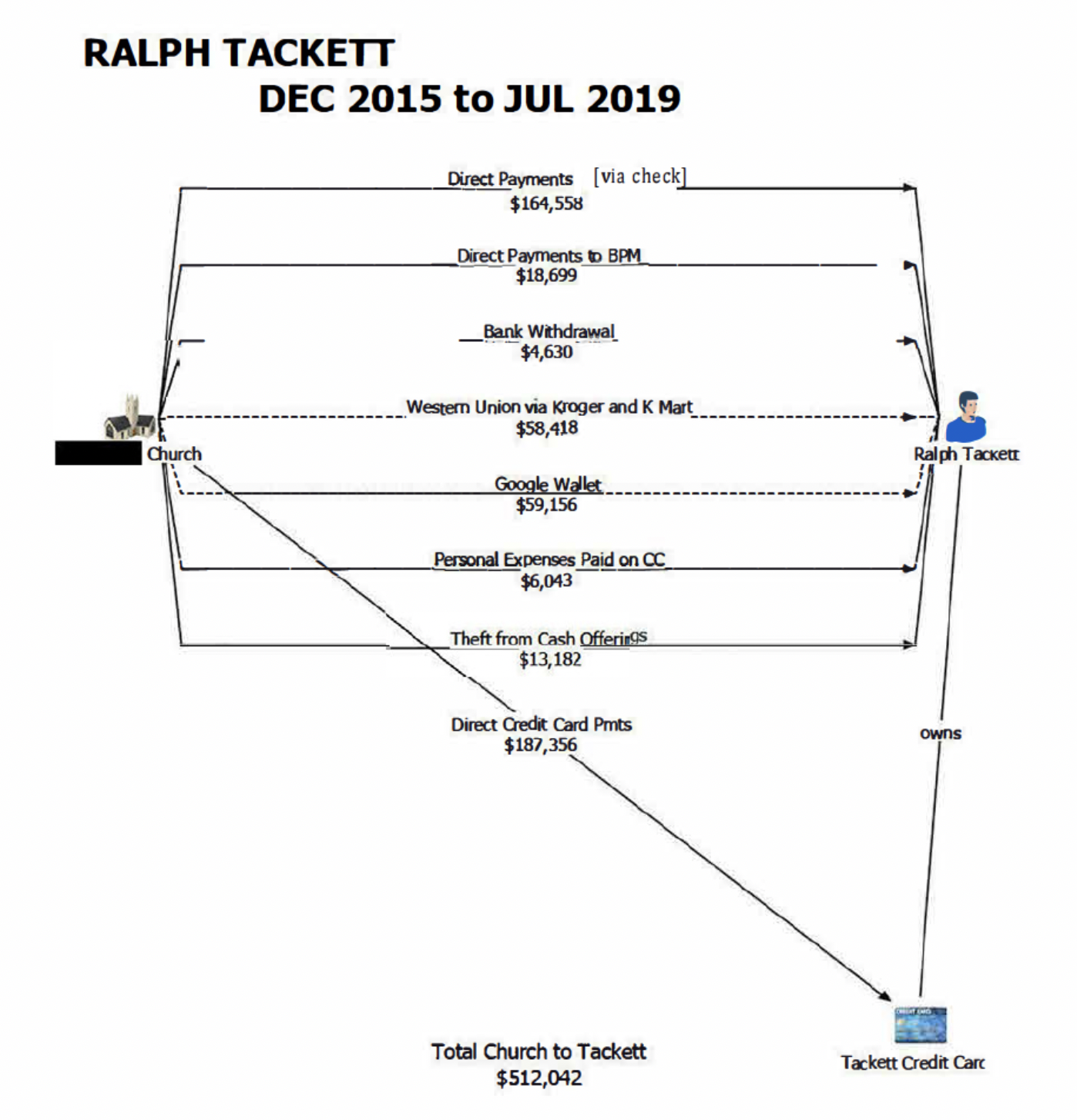Georgetown man who stole from church to pay blackmailer sentenced to federal prison

Lexington, Ky.–A Georgetown man was sentenced to 33 months in federal prison and ordered to pay $532,807 in restitution Monday for wire fraud after he stole over half a million dollars from a local church while acting as their treasurer. The fraud occurred over four years. Judge Danny Reeves issued the judgment.
Ralph Tackett, 66, stole $512,042 from his church and used some of the money to pay a blackmailer, according to court records.
He treated the donations and funds of the church as if he were entitled to them — he managed the church’s operating account as if it were his own secret bank account.
He concealed his threats by generating over-simplified monthly reports that omitted the numerous unauthorized transfers of funds he made to pay his own personal debts.
US Attorney – Sentencing Memorandum
Tackett’s defense attorney says he was scared and trying to protect his reputation. Court documents claim the blackmailer threatened to reveal Tackett’s “sexual exploits,” according to a Herald Leader report.
Plea Agreement admissions:
In his plea agreement, Tackett admitted the following:
(a) At all times relevant to the Information, the Defendant was a resident of Georgetown, Kentucky and worked in Scott County, all located within the Eastern District of Kentucky.
(b) At all times relevant to the Information, the Defendant was the treasurer for a private religious organization operating out of Scott County that is known to the parties as “the Church.”
( c) At all times relevant to the Information, the Defendant exercised control over the Church’s financial affairs to the exclusion of the pastor and other Board members. Among other things, the Defendant approved and processed payments, managed mortgage payments, deposited cash offerings, and managed the Church’s bank account ending in *0912.
(d) At all times relevant to the Information, the Defendant owned, used, and controlled a personal credit card account with American Express ending in *2005.
(e) Beginning in December 2015 and continuing up until about July 2019, the Defendant began embezzling money from the Church account for his own personal use.
(f) The Defendant stole money without authorization or justification in multiple ways with varying motives: The Defendant stole money to pay an out-of state individual who made financial demands of him, he directly paid $187,356.00 on his personal credit cards with Church funds, and he issued checks in his spouse’s name without her knowledge and then deposited those funds into his own personal and business accounts for his own personal benefit.
(g) The Defendant created monthly reports for the Church operating account and provided them to the pastor which contained material misrepresentations about the flow of funds in and out of the account and omitted material facts about the numerous unauthorized transfers he made.
(h) The Defendant intentionally concealed the detailed bank account statements from the Church to avoid detection.
(i) The Defendant’s acts and omissions caused financial hardship to the Church.
(j) The Defendant stole approximately $512,042.00 from the Church and misappropriated those funds for his own personal benefit and for the benefit of his designees over the course of approximately 44 months.
(k) On August 20, 2018, in furtherance of the scheme described above, the defendant caused to be transmitted by interstate wire communication an electronic payment of $1,051.16 from WesBanco account ending in *0912, which was held in the name of the Church, to an American Express account corresponding to a credit card account ending in *2005, which was held in the name of the Defendant.

Recommended Posts

Despite what some politicians say, crime rates are decreasing
Fri, July 5, 2024

Kentucky Children’s Hospital at UK opens center to treat children who are harmed by abuse and neglect, in which Ky. ranks 14th
Sat, March 16, 2024

Tates Creek grad and startup founder convicted on wire fraud charges in Texas
Wed, February 14, 2024